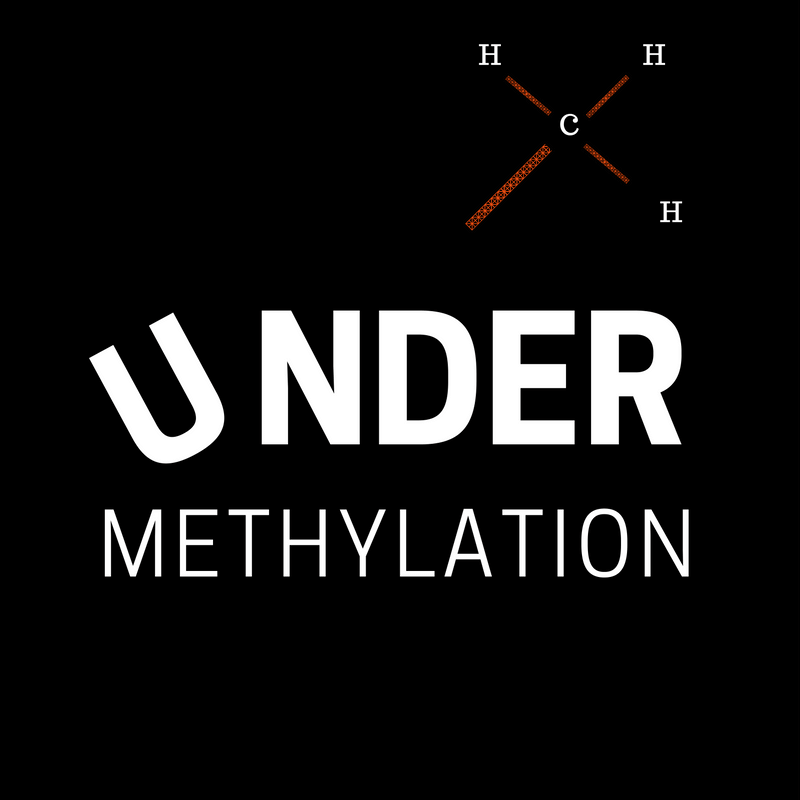During the methylation cycle, neurotransmitters are created, giving rise to certain emotional states. If there are problems with the methylation cycle, it is speculated that a number of different psychiatric symptoms may arise.
Below is a collective list of symptoms, both physical and psychiatric that people with undermethylation tend to exhibit.
Fatigue: poor energy production
Depression, Anxiety and Insomnia: low levels of serotonin and dopamine will make one susceptible to depression, anxiety and insomnia.
Joint pain/swelling/stiffness.
Addictions: such as to alcohol, caffeine, chocolate, junk food, other people, exercise, work, reading, etc.
Competitive: in sports, business, and other facets of life.
Concentrative endurance: difficult time maintaining focus for prolonged periods of time.
Delusions: or beliefs that aren’t based in reality. While these generally are not severe, then can interfere with the accuracy of a person’s perception of reality.
Headaches
Perfectionism, High achievement: Essentially Undermethylators have low levels of SAM-e, which donates methyl. This can lead to perfectionism, high accomplishment, and high achievement. Many individuals considered top athletes, CEOs, and professionals may be fuelled in part by undermethylation. Undermethylators aren’t satisfied unless tasks are completed in accordance to their specific methodology. They may be intolerant to less-than-perfect outcomes.
High libido: highly interested in sex and/or have a higher than average “drive” compared to others.
Obsessive compulsive: Undermethylation may provoke symptoms of OCD or other obsessive tendencies.
Inner tension: may appear to exhibit a calm demeanour, they may be filled with inner tension.
Phobias: certain phobias or irrational fears may be caused in part by undermethylation.
Ritualistic behaviour: may engage in ritualistic behaviour or have specific rigid schedules.
Seasonal allergies or frequent colds/flu: allergies may be stronger among undermethylators, particularly during seasonal transitions. This may be related to elevated levels of histamine, leading to more pronounced reactions.
Unexplained nausea.
Good tolerance of cold, poor tolerance of heat.
Self-motivated: highly self-motivated in areas of fitness, diet, work or study.
Social isolation: may isolate themselves from others and prefer to be left alone, especially during the completion of work.
Strong willed.


